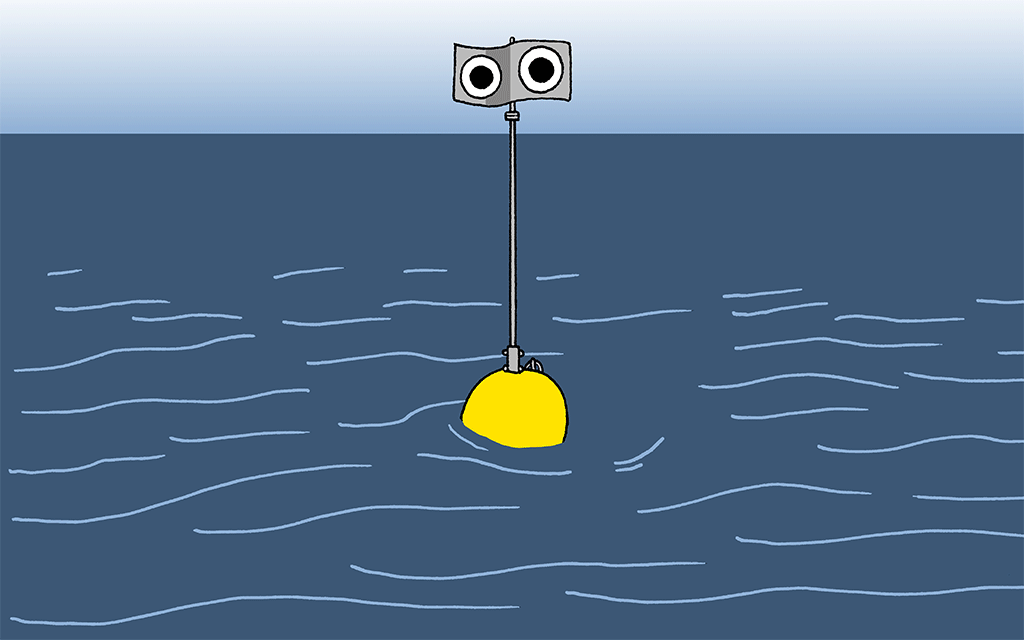ICYMI: Googly Scarecrow, Back-Seat Driver & Don't Put Your Gas in Baggies
A weekly roundup for busy people

Putting cartoon googly eyes atop gill-net buoys can scare off seabirds and prevent entanglements.
After a four-year hiatus during the Trump years, the EPA is once again updating its climate-change page. The news is not good.
The Interior Department approves Vineyard Wind, the first large-scale offshore wind-energy project in the US.
Tesla stops accepting Bitcoin as payment for its cars because of the large amount of energy—mostly from fossil fuels—required to produce it.
A Bay Area man who boasts of his “gold-collar” lifestyle is arrested for reckless driving after riding in the back seat of his driverless Tesla. Following his release from jail, he repeats the stunt in a new car.
A ransomware attack shuts down the Colonial Pipeline, which carries gasoline from Gulf refineries up the East Coast. News of the hack leads to widespread panic buying and hoarding of gasoline in the Southeast. The hackers apologize, writing, “Our goal is to make money and not creating problems for society.”
The US Consumer Product Safety Commission warns motorists not to store gasoline in plastic bags.
A Hummer whose driver had just filled four five-gallon containers of gasoline at a filling station in Florida catches fire and melts.
Melting glaciers in the Alps expose relics from World War I.
As of May 11, California’s snowpack is only 6 percent of average. Governor Gavin Newsom declared a drought emergency in 41 of 58 counties.
Idaho governor Brad Little signs a bill that could lead to the killing of 90 percent of the state’s wolves.
In its first year, the trust fund through which California utility Pacific Gas & Electric was supposed to compensate the 67,000 victims of the 2018 Camp Fire spent $51 million on overhead and dispersed only $7 million to fire victims.
The Dutch government will spend $2.6 billion to sequester 2.5 million tons of carbon per year from the Port of Rotterdam into depleted gas fields in the North Sea.
For the first time, big-wall climbers in Yosemite National Park will need to obtain (free) permits.
China erects a barrier at the summit of Mt. Everest to separate climbers from China-controlled Tibet and those from Nepal, which is suffering a surge in COVID cases.
Dutch scientists train honeybees to stick out their tongues when they sense the coronavirus.
 The Magazine of The Sierra Club
The Magazine of The Sierra Club



